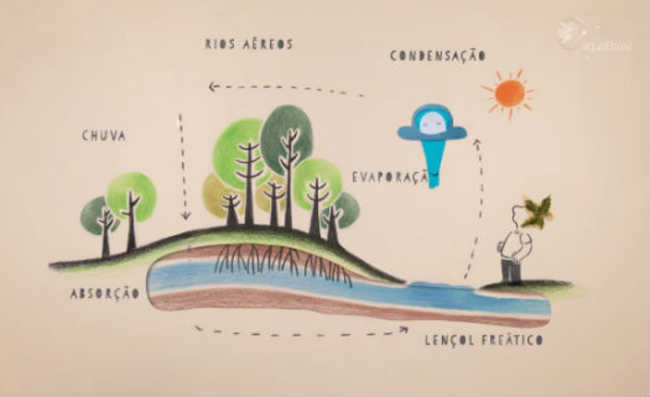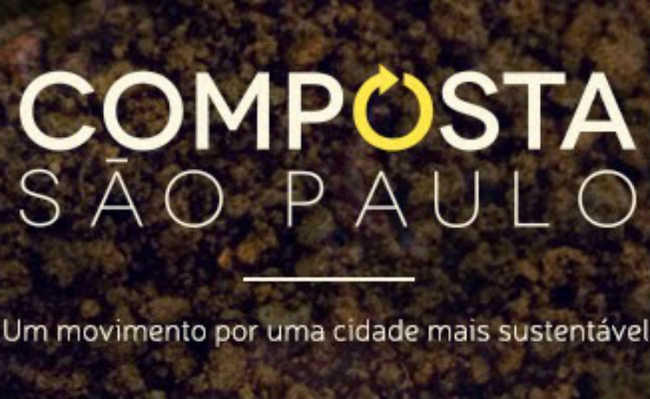Company B: a sustainable business system
More than 2000 companies worldwide have joined the "B system", which values social development

Company B is a company whose business model is social and environmental development. System B is a movement that seeks to disseminate sustainable and equitable development through the certification of companies globally. Every company in system B aims to solve social and environmental problems.
In your book and first work The Theory of Moral Sentiments, Scottish economist and philosopher Adam Smith argues that it is natural for human beings to seek to please other people and feel welcomed by them. According to Smith, in the nature of humanity "there are principles that make him take an interest in the fate of others and consider their happiness necessary for himself, although he derives nothing but the pleasure of watching the happiness of his fellow man."
Many people are unaware of this more "friendly" side of the economist, better known as one of the creators of economic liberalism and for his most famous work An Inquiry into the Nature and Causes of the Wealth of Nations, simply recognized as The Wealth of Nations - it is often associated with savage capitalism, which generates income concentration and social inequality. However, like most theorists of humanity, Adam Smith believed that it was necessary to formulate ways to establish a social order that sought the common good, despite the fact that human beings are endowed with selfish feelings. By recognizing these feelings, Smith reinforces that humanity, in general, has a certain altruism that opposes self-interest and that makes them look for ways to compensate for the suffering of others.
In other words, for Smith, we do good deeds because, as spectators, we can put ourselves in the shoes of others and imagine their suffering or difficulties, even without going through it. But the Scottish economist points out that "sympathy does not arise so much from contemplating passion as from the situation that provokes it." To illustrate this, Smith emphasizes that this sympathy can only be achieved as the spectator "strives as much as possible to put himself in the other's situation . . ."
in spite of The Theory of Moral Sentiments being full of complex concepts, the one described above shows well how initiatives aimed at social well-being arise in any type of economic system. This is the case of the so-called Solidarity Economy.
What is Solidarity Economy?
According to the Ministry of Labor and Employment, "Solidarity Economy is a different way of producing, selling, buying and exchanging what is needed to live. Without exploiting others, without wanting to take advantage, without destroying the environment. Cooperating, strengthening the group, each one thinking about the good of all and their own good."
A great exponent of this economy in Brazil is Paul Singer, economist and professor. In his book "Introduction to Solidarity Economy" he emphasizes that we are used to seeing a society inserted in a market capitalism, where competitiveness generates positive points for the winners, but reserves social consequences for those who cannot win over consumers. In general, the fate of those companies that fail, of students who do not pass the entrance exam, of workers who cannot find a job, is seen only as a consequence of the game.
- What is Solidarity Economy?
And it is exactly at this moment that Smith's words gain strength, because, in this purely competitive system, how can bankrupt entrepreneurs who cannot get their credit approved in the banks rise again and generate new businesses and jobs?
In principle, placing Smithian ideas in this solidarity economy context seems to be extremely controversial. After all, in his best-known book, The Wealth of Nations, the economist states that competitive markets are one of the best ways to induce the efficient and productive use of a country's resources. But in the face of that, consider his words in The Theory of Moral Sentiments: “In the race for wealth, honor and privilege, [humanity] will be able to run as fast as it can, straining every nerve and every muscle to outrun all its competitors. or knocks down any one of them, the viewer's tolerance ends."
Adam Smith knew that no society is perfect: neither those adhering to free-market economies nor those of regulated economics. This is due to the selfishness of humanity, according to the author. Therefore, whether on behalf of companies that set up cartels, pay low wages and make lobby or due to corrupt governments, systems tend to generate inequalities and dissatisfaction. Therefore, much would depend on us, as a conscious and altruistic society (spectators), to meet such needs. As an example, we can mention that even if a company is inserted in the context of market competitiveness, when it uses "dishonest" artifices, such as exploiting child labor in underdeveloped countries to lower costs, the "consumer tolerance (spectator)" disappears and this company is punished by them, as they can choose to pay more for the same product, provided that it is manufactured in accordance with the law and common sense.
However, history shows that, although Adam Smith's theory fits all these variants, the practice was not as effective and new additions emerged to complement it. The Solidarity Economy embraces those who find themselves in the situation described by Singer - those excluded from the capitalist game driven by competition - and proposes egalitarian forms of enterprises, cooperatives, exchange clubs and others. In a nutshell, the solidarity economy is an attempt to humanize the capitalist system. And it's not the only one.
Other initiatives with a social bias have emerged and stand out for encouraging new organizational models that encourage the use of business power to solve social and environmental problems. It is in this scenario that the Company B model emerges, which is the one that integrates System B.
B companies
B companies are those that use their businesses to develop communities and reduce poverty, and also seek solutions to climate problems. The “B Corps” concept was created by B-Lab in the US in 2006, with the purpose of redefining success for business. Today, there are more than 950 companies – 75 of them in Latin America – in 30 countries and 60 sectors. In Brazil, this concept arrived recently, led by the Committee for the Democratization of Information Technology (CDI) in partnership with Sistema B, the movement's representative in Latin America, and already has 46 companies with the certificate.
Ouro Verde Amazônia is the first company certified with System B in the country. The certification is granted after extensive analysis of business practices, in all areas, such as the relationship with workers, community, environment, suppliers, government, in addition to transparency practices.
System B has the following values and mission:
- Solve social and environmental problems from the products and services offered by the companies themselves; and in labor and socio-environmental practices, serving communities, suppliers and stakeholders;
- A rigorous certification process that examines all aspects of the company and must meet minimum performance standards, in addition to having a strong commitment to transparency in publicly reporting its social and environmental impact;
- Also make legal changes to protect your business mission or purpose and therefore combine the public interest with the private. It will also build trust with citizens, customers, employees and new investors.
Basic requirements to become a B Company
Carry out impact assessment B
Impact Assessment B assesses the company's overall impact on its stakeholders. The assessment varies by company size (number of employees), sector and location of primary operation. The procedure usually takes one to three hours; after completing the assessment, an Impact Report B is issued with an overall score.
Complete an Assessment Review
Then an Assessment review with a member of the B Lab team is scheduled. In this call, the team will review questions that may have been difficult to answer or are unclear, and help you understand more about the circumstances and what would be best practices for your company . On average, it takes about 60-90 minutes to complete a review.
Submit Supporting Documentation
In their Assessment commentary, the team will also show the company how to present the supporting documentation and whether it scores above 80 out of 200 possible points. The assessment randomly selects eight to 12 questions answered in the affirmative and asks future company B to document its practices in detail. The list of documents will be generated after review and evaluation.
Complete Questionnaire Disclosure
The Disclosure Questionnaire allows the company to confidentially disclose to B Lab any sensitive practices, fines and sanctions related to the company or its partners. This component does not affect the company valuation. Typically, most of these responses are minor in nature and therefore no further action is required. However, if you identify one or more items in the Disclosure Questionnaire or in a verification of the Company and its senior management of material background (suspicious practices involving payment of taxes and the like), it may be necessary to provide additional information. Acceptance and continued participation in the B Corp community is at the sole discretion of the B Lab Standards Advisory Board and Board of Directors.
- See in full what it takes for a company to be part of the concept
Benefits of Becoming a B Company
In addition to the obvious benefit of becoming a company officially engaged with sustainability in its industry through system B , other factors make the certification provided by B Lab even more attractive, such as saving on access services (CRM-Salesforces, e-commerce etc), attract investors linked to the solidarity economy (so-called social entrepreneurs) and participate in advertising campaigns promoted by B-Corp. It is possible to analyze all the benefits more specifically.










